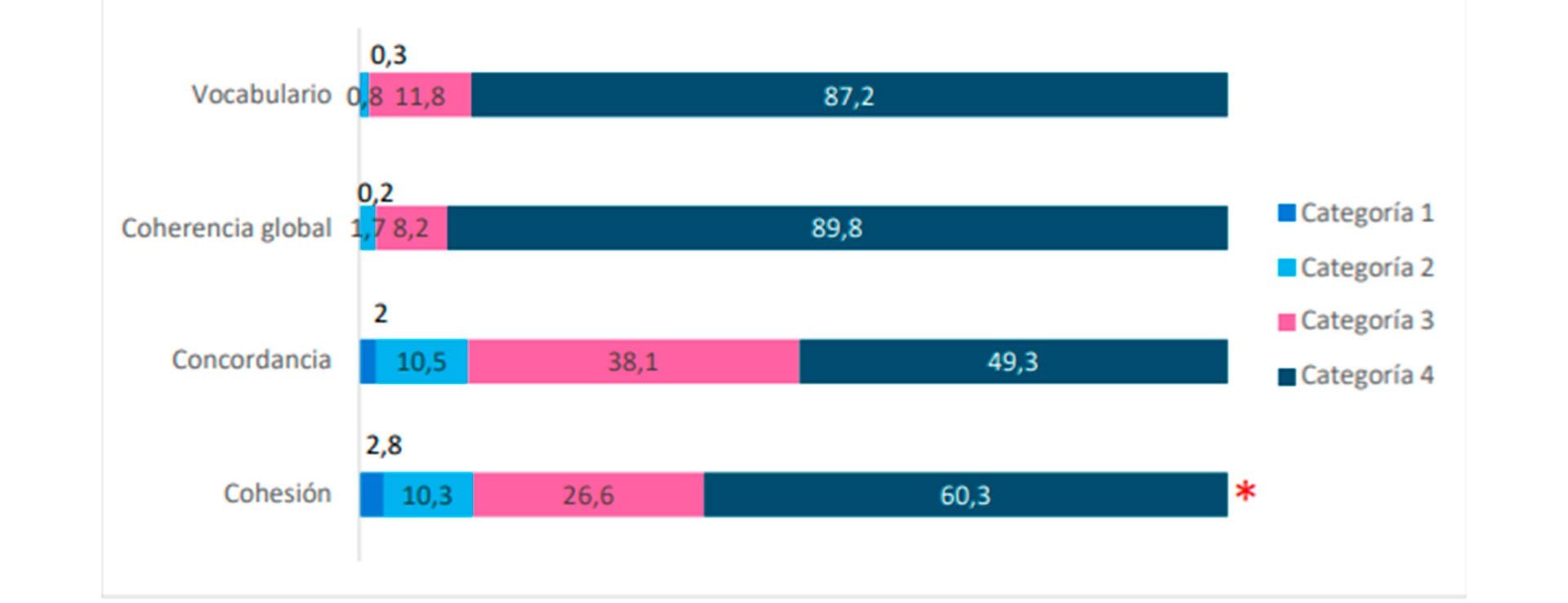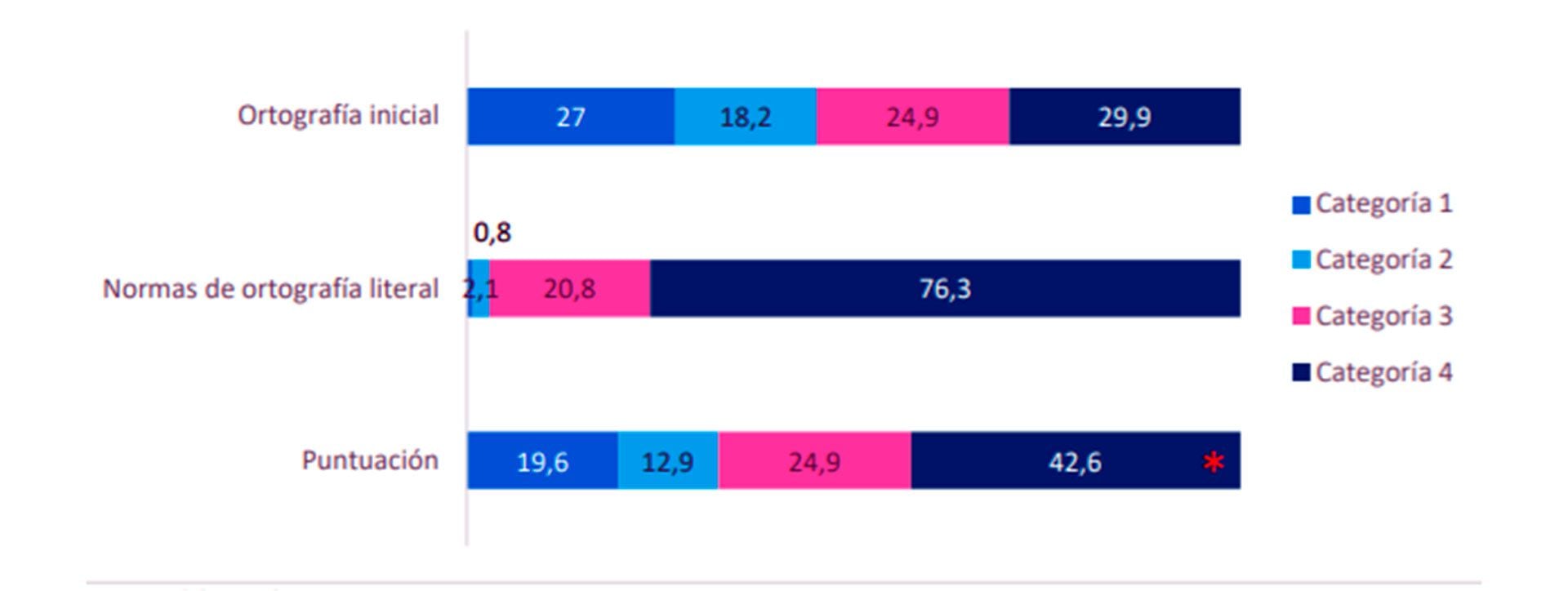
This morning UNESCO presented the results of the writing test, the pending part of the Regional Comparative and Explanatory Study (ERCE) that was taken in 2019, before the pandemic. In the results published in November last year, Argentina had recorded the worst performance in its history in mathematics, reading and science. Now, in writing, the boys performed better although they showed some shortcomings.
The test measured third and sixth graders in writing. The results show that students, in general terms, “write texts according to the requested slogan, maintain the thematic unity with an informative progression and use adequate vocabulary”. However, they present difficulties in adapting to what they call legibility conventions -spelling and punctuation-, especially in the third grade.
The Regional Office for Education for Latin America and the Caribbean (OREALC/UNESCO) today released the results. Sixteen countries participated in the test, but this time it did not include a regional report that would allow comparisons between student performance. In mathematics, reading and science, Chile, Costa Rica and Peru had stood out.
For the writing test, a representative sample was taken from 227 Argentine schools, which responded just over 5,000 boys in each grade. In addition to Argentina, Brazil, Colombia, Costa Rica, Cuba, Ecuador, El Salvador, Guatemala, Honduras, Mexico, Nicaragua, Panama, Paraguay, Peru, Dominican Republic and Uruguay participated.
Claudia Uribe, director of OREALC/UNESCO, explained: “Writing is a highly demanding competence at the cognitive level and, unlike oral language, it does not develop naturally in most people. That is why it must be taught from the earliest levels of the educational process and continue to practice and teach it intentionally throughout the school journey.”
According to the specialist, nowadays, “writing is one of the most demanded skills in the workplace, being critical for good performance in multiple trades and professions”. “Writing helps to think, to order and transmit ideas, to interact with others indirectly and asynchronously, to communicate and capture thoughts, reflections and learnings in a lasting way, among many other functions. The development of high levels of competence in writing is an imperative for all education systems,” he said.
Unlike evaluation in the other subjects, in writing students did not respond to a multiple-choice, but took a developmental test. Therefore, the correction took longer and experts from each country analysed the texts to establish whether the children handled the notions contemplated in the curriculum.
For the correction, three indicators were evaluated: the discursive domain (communicative purpose and appropriateness to the slogan, gender of the text and, in the case of sixth grade, also, registration); the textual domain (vocabulary, global coherence, sentence agreement and textual cohesion) and the legibility conventions (spelling and score).
Third grade results



The third graders were asked to write a narrative letter about a trip and a presentation text for a local dance. In general terms, Argentine students performed better in the textual domain than in the discursive domain. 80% wrote texts keeping the central theme, without repetitions or inaccuracies in the use of words, ranking at the highest level of performance (level 4).
Although most wrote texts without mismatches between sentences, one-fifth of the students showed difficulties in handling the links. Also, in general, they wrote concordant sentences, although about 1 in 4 boys confused, for example, gender.
The alert emerged in the last of the aspects evaluated, in the domain of readability conventions. Almost half of the boys missed or missed punctuation marks. In the third, only the interruption of the sentence or the absence of commas in an enumeration were considered as errors. The gap was striking: 48% were at the lowest level (1) and 44% at the highest level (4). There was practically no room for intermediate results.
Sixth Grade Results



Sixth graders were asked for a letter of request and a descriptive text of an animal that did not exist. In comparison, the results in the sixth grade were above the performance of the third grade.
The majority (66.7% in the writing of a letter and 77.6% in the writing of the descriptive text) managed to produce texts for the requested purpose and appropriate to the slogan. In addition, more than 80% wrote the texts without repetitions or inaccuracies and more than 95% were able to maintain the central theme of the writing (global coherence).
Regarding spelling, one in four boys made more than one spelling mistake in their texts. In scoring, 20% failed in one of the items evaluated for the grade: interruption of a sentence with a period, absence of commas in an enumeration and absence of a period and followed when necessary. Tildes were not considered, for example.
KEEP READING:
Últimas Noticias
Debanhi Escobar: they secured the motel where she was found lifeless in a cistern
Members of the Specialized Prosecutor's Office in Nuevo León secured the Nueva Castilla Motel as part of the investigations into the case

The oldest person in the world died at the age of 119
Kane Tanaka lived in Japan. She was born six months earlier than George Orwell, the same year that the Wright brothers first flew, and Marie Curie became the first woman to win a Nobel Prize

Macabre find in CDMX: they left a body bagged and tied in a taxi
The body was left in the back seats of the car. It was covered with black bags and tied with industrial tape
The eagles of America will face Manchester City in a duel of legends. Here are the details
The top Mexican football champion will play a match with Pep Guardiola's squad in the Lone Star Cup

Why is it good to bring dogs out to know the world when they are puppies
A so-called protection against the spread of diseases threatens the integral development of dogs



